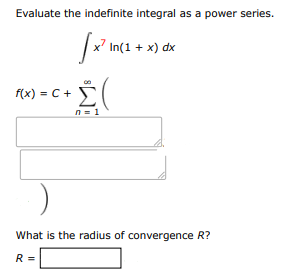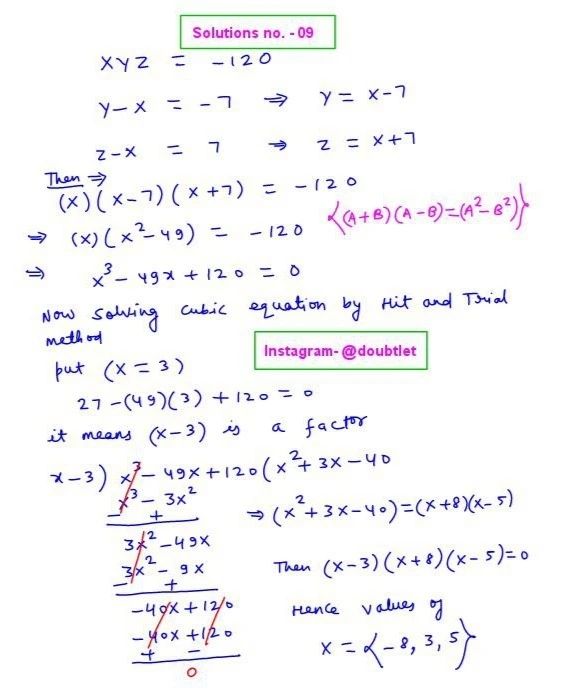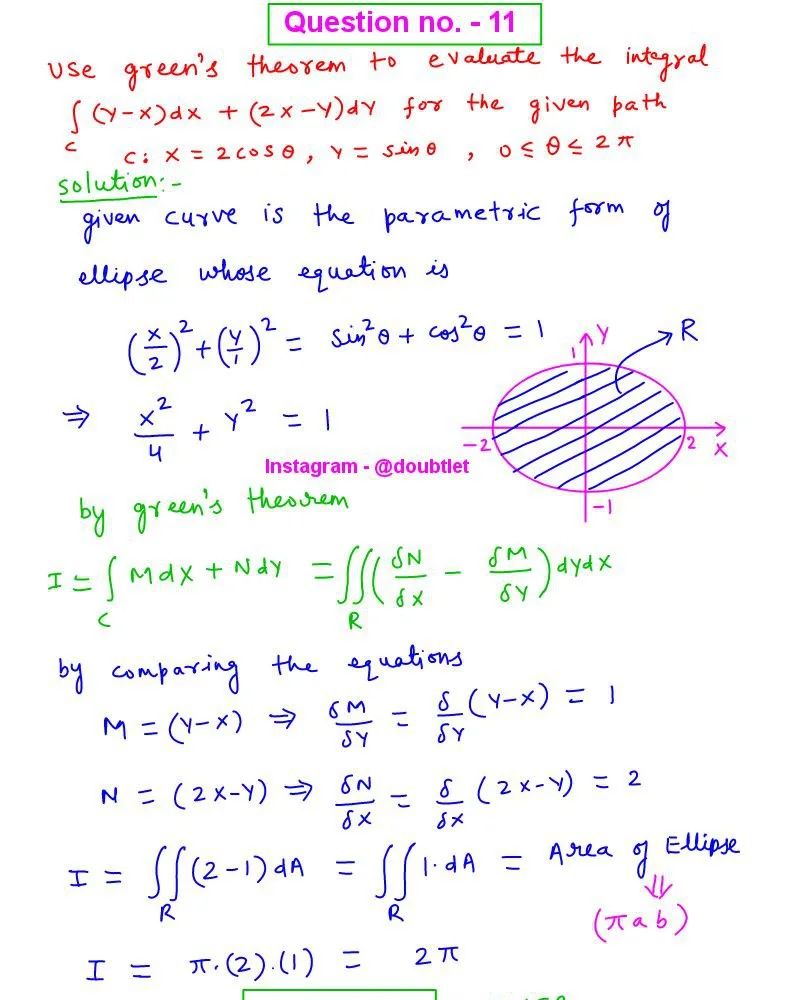









Question :
Evaluate the indefinite integral as a power series:
what is the radius of convergence ?

Solution:

Neetesh Kumar | December 20, 2024
Calculus Homework Help
This is the solution to Math 1c
Assignment: 11.9 Question Number 10
Contact me if you need help with Homework, Assignments, Tutoring Sessions, or Exams for STEM subjects.
You can see our Testimonials or Vouches from here of the previous works I have done.
Step-by-step solution:
Step 1: Recall the series expansion for :
The power series for is:
Step 2: Multiply by :
The integrand is . Multiply the power series for by :
Simplify the powers of :
Step 3: Integrate term by term:
The indefinite integral becomes:
Integrate term by term:
Thus, the series for the integral is:
Step 4: Determine the radius of convergence:
The power series for converges for . Multiplication and integration do not change the radius of convergence. Thus:
Final Answers:
1. The power series representation is:
2. The radius of convergence is:
Please comment below if you find any error in this solution.
If this solution helps, then please share this with your friends.
Please subscribe to my Youtube channel for video solutions to similar questions.
Keep Smiling :-)
Comments(0)



Leave a comment